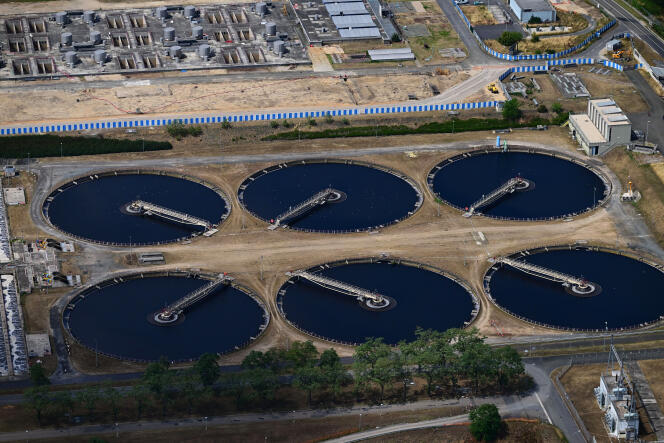The murkiest waters could bring additional clarity to monitoring the Covid-19 epidemic. Public Health France (SPF) announced, Thursday, October 5, during a press briefing, that surveillance data from the Sum’Eau system (for “microbiological monitoring in wastewater”) would be available the same day on the site data.gouv.fr and integrated from October 11 into the weekly monitoring bulletin for acute respiratory infections, including Covid-19.
In the SPF toolbox for monitoring the virus, Sum’Eau will join three other indicators used for a long time: visits to emergency rooms and hospitalizations reported by the Oscour network, reports from SOS doctors associations, and the network Sentinels which reports cases reported by private doctors.
From the start of the pandemic, researchers explored the possibility of tracking the circulation of SARS-CoV-2 based on the presence of the virus in human stools and therefore in wastewater. France was one of the pioneering countries in this area, with the Obépine network of researchers which published data between summer 2020 and spring 2022, from 200 wastewater treatment plants representing 40% of French people. Members of Obépine also participated in the design of Sum’Eau.
The monitoring system is based at this stage on samples taken from twelve wastewater treatment plants in mainland France, one per region with the exception of Corsica, “selected based on population and territorial representativeness criteria”, according to SPF. Longer term, “we have identified around a hundred stations which would be interesting to follow”, specifies Damien Mouly, the national coordinator of Sum’Eau.
Weekly samples are sent to the hydrology laboratory of the National Agency for Food, Environmental and Occupational Health Safety (ANSES) in Nancy. SPF specifies that “exploratory work” are underway to evaluate the possibility of sequencing the viruses found in wastewater in order to distinguish the different variants in circulation, with “first conclusive results”.
“Multi-source system”
The three indicators published so far by SPF are linked to the clinical examination. In fact, they cannot say anything about asymptomatic people or those who think they have contracted Covid but do not get tested. This public, on the other hand, is captured by wastewater analysis. In more trivial terms: if not all infected people are systematically screened, all of them, on the other hand, regularly go to the toilet. “This independence in relation to screening behaviors or access to care is very interesting,” according to Caroline Semaille, the general director of SPF.
You have 44.78% of this article left to read. The rest is reserved for subscribers.
